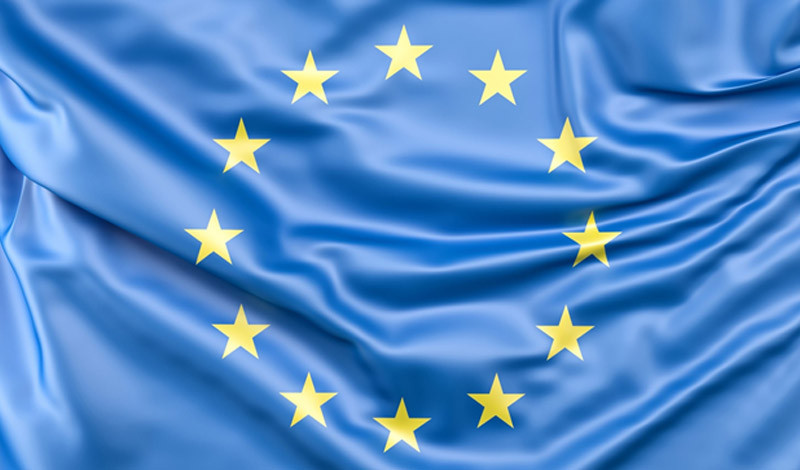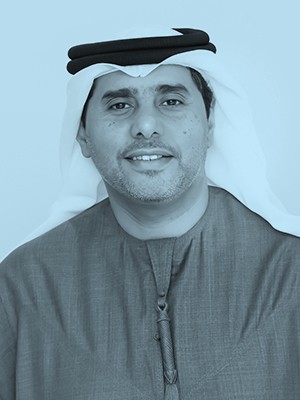MAPPING EUROPEAN LEVERAGE IN THE MENA REGION
The idea that the European Union has enduring ties to the Middle East is increasingly challenged by today’s strategic environment, in which the region is widely seen as more of a liability than a source of opportunity for Europe.

- by Mohammed Abdul Rahman Baharoon ,
- Sunday, 29th December, 2019
For Middle Eastern visitors to EU institutions in Brussels, a discussion on the region will seldom concern space exploration, research and development, or education reform. More likely, it will be about immigration; extremism; conflicts in Libya, Syria, or Yemen; or human rights. However, policymakers from the Middle East believe that Europe’s discussions rarely lead to decisive action. From an Emirati perspective, the EU’s track record in the Middle East in recent years shows that it now has little impact on regional issues. While the United Arab Emirates continues to look to diplomatic allies in France, Germany, and the United Kingdom – and while historical and personal relations continue to be an asset and source of good counsel for regional leaders – Europe’s lack of traction can be seen in the areas discussed below.
DIPLOMACY
Diplomatically, the EU and its member states struggle to maintain a uniform and effective position on foreign policy issues that concern countries close to Europe’s borders. European discussions on the Syria conflict – which is possibly the most relevant Middle Eastern topic for Europe, given its impact on immigration – has hardly led to any concrete outcomes, with member states even adopting opposing positions on the issue. The Libyan war, meanwhile, provides an obvious example of European incoherence and inconsistency: EU institutions and countries appear incapable of providing the leadership needed to resolve the situation, especially in comparison to other external players, such as Turkey.
The EU’s diplomatic vacillation is also evident in its role in the Palestinian-Israeli conflict – in which it currently has no substantial weight, despite having been an active player during the Oslo process. While the conflict is a chronic problem, Arab Gulf states view Iran as presenting the most urgent challenge to security in the region. Europe’s position on Iran seems to be one-dimensional – from the Emirati vantage point, at least. The Joint Comprehensive Plan of Action (JCPOA) is the only entry point for a discussion with EU officials on Iran. And threats to withdraw from the JCPOA seem to be the only leverage Europeans are willing to use in response to Iran’s behaviour. Neither this nor the EU’s Instrument in Support of Trade Exchanges appears to have any significant impact on Tehran.
Given the troubled state of EU diplomacy, regional players such as the UAE felt that they had no choice but to try and work within the context of intra-European divisions, by strengthening and cultivating bilateral ties with some of its more proactive and influential European partners on issues of mutual interest. This includes, for instance, significant coordination with France on Libya.
SECURITY
For the UAE, the lack of a European footprint in the Middle East’s security is perhaps even more problematic, given the volatility of the region. While European powers played a role in the removal of Muammar Gaddafi in Libya, they have subsequently been unwilling to deploy military power to end the civil war there – in a pattern that is replicated in other regional theatres that affect European interests. From an Emirati perspective, there has been insufficient European focus on broader threats to stability, including in, most crucially, areas such as maritime security and defences against missile and drone attacks. While Europe’s unwillingness to join a maritime security structure in the Gulf reflected opposition to US President Donald Trump’s views on Iran, Europeans appear incapable of taking a strong position on how to maintain regional security and deter Iran from further provocation. Although EU member states such as France, Germany, and the UK have backed the United States in blaming Iran for recent attacks on Saudi oil facilities, the European External Action Service’s statement on the incident was limited to a mere expression of “sympathy”. This is despite the fact that the incident was one of the gravest assaults on the global energy market in recent years.
ECONOMY
Europe has had little involvement in the Middle East’s economic ambitions in comparison to, for example, South Korea – with which the UAE has sought partnerships in developing its satellite programme and constructing its first nuclear power reactors. Similarly, the UAE partnered with Russia to send its first astronaut to the International Space Station. Until recently, European countries were the UAE’s premier partners in developing an indigenous defence industry. For instance, France partnered with the UAE to build Baynunah-class corvettes. However, European powers have been hesitant to fully pursue even these few ventures. As such, the UAE’s efforts to develop the Mako aircraft with the European Aeronautic Defence and Space Company failed. The UAE has turned to potential partnerships with South Africa and China to develop its nascent indigenous defence industry – representing another lost opportunity for Europe.
EU INFLUENCE IN THE MIDDLE EAST
Despite this bleak picture, Europe retains some elements of influence in the Middle East through its soft power. Major investments in culture and education, part of nation-building projects, continue to be heavily influenced by Europe. For example, those such as the Louvre Abu Dhabi and Sorbonne University Abu Dhabi indicate that European culture shapes the way that Emiratis see both the past and the future. Europe is also home to several world institutions that are essential to Middle Eastern affairs, ranging from OPEC to the Organisation for Economic Cooperation and Development – from NATO to the International Atomic Energy Agency. These factors still put Europe at the heart of the Gulf region’s global outreach. But the cold reality is that European influence is limited in scope and that countries such as the UAE now look elsewhere for their national security requirements and economic development.
As competitive multipolarity finds its biggest theatre of operations in the Middle East, it is perhaps inevitable Europe’s influence in the region is declining as China and Russia increase their presence there. This might be a comfortable position for Europeans, who are no longer the first port of call when a crisis erupts – and can, therefore, claim to be a moral compass for the region. However, the consequences of inaction on issues such as the migration crisis demonstrate that what happens in the Middle East does not stay in the Middle East.
Mohammed Baharoon is the Director General of b’huth, an independent public policy research Centre founded in the UAE in 2002. Baharoon studied at Kuwait University and Texas Tech University and is a former journalist, working as a reporter for Al Arabi Magazine, Al Ijtihad newspaper and Gulf defiance Magazine.

Mohammed Abdul Rahman Baharoon
Director General
Read More
Areas of Expertise
- Geo-strategy
- Reputation and soft power
- Public Policy and International Relations
Education
- Master’s degree in English Literature from Texas Tech University in 1995
- English Major from Kuwait University in 1987
Bio
He perused a career in media as a reporter for “Al Arabi” Magazine, Al Ittihad newspaper, and then Editor for Gulf Defense Magazine before starting as director of research at both and focusing on the interplay between Geostrategy and policymaking in governance, stability, capacity building, and future-proofing.
Mohammed has also worked as Deputy Director of Watani (UAE’s first initiative on National Identity) and is also a founding member of the board of “Bussola Institute” a think tank in Brussels that focuses on the changing and emerging aspects of the partnership between the EU and the GCC member states.
As part of his interest in the emerging geostrategic space of the Arabian Peninsula, Mohammed looks at Iran as part of the development of the area as a major trade artery. This development implies developing a sustainable relationship with its regional neighborhood on the Arabian Gulf, The Arabian Sea, the Red Sea, or the Mediterranean. Iran is a major component of that space and becoming more adaptable to the modernization process will allow it to become part of the future development of the region.

